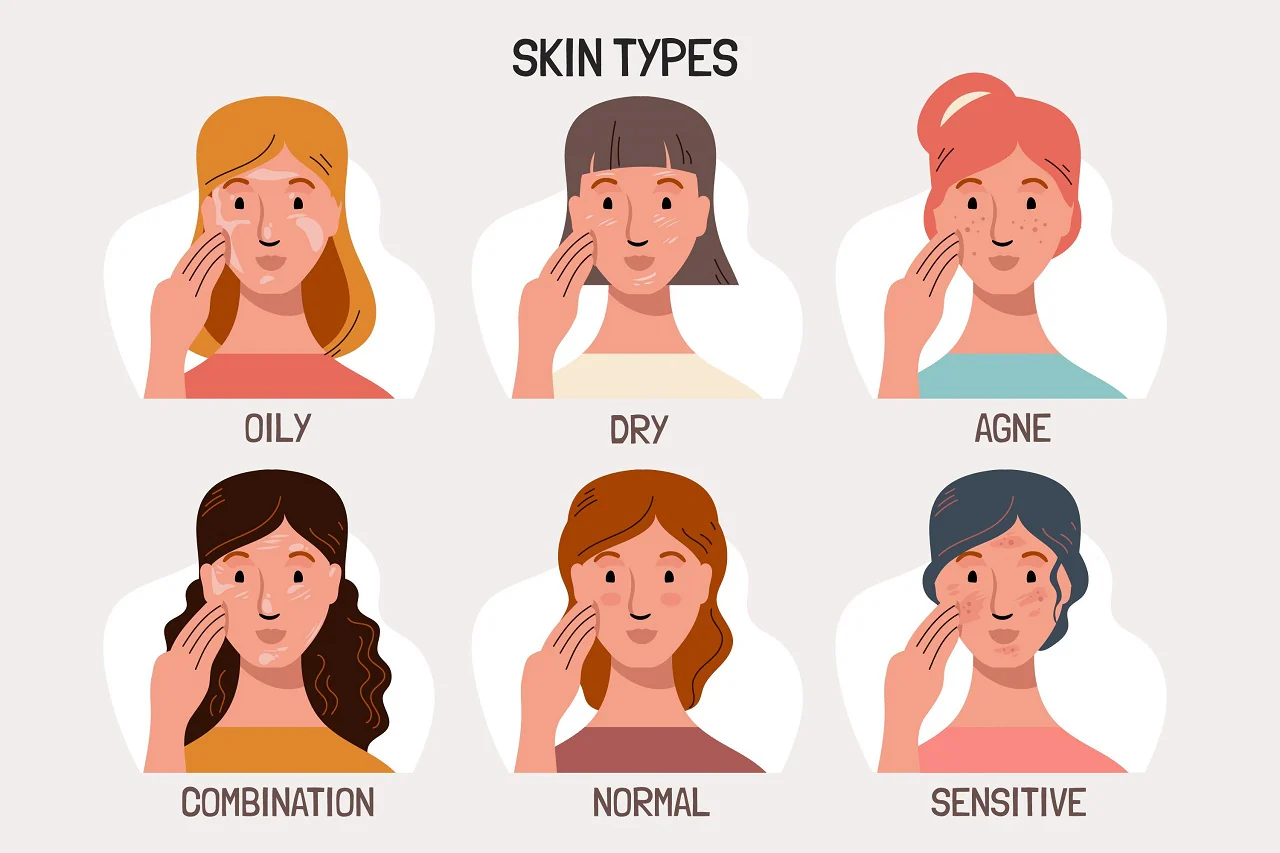Basic Cosmetology
Introduction to Cosmetology
Skincare Basics
Skin Types and Common Skin Problems
Introduction
Understanding different skin types and common skin problems is essential for a cosmetologist. It helps in choosing the right products, treatments, and techniques to provide personalized skincare services to clients. Proper knowledge about skin ensures healthier results and client satisfaction.

Types of Skin
- Normal Skin: Balanced moisture and oil content. Smooth texture and minimal blemishes.
- Oily Skin: Produces excess oil, making the skin look shiny or greasy. Prone to acne and clogged pores.
- Dry Skin: Lacks moisture, leading to flakiness and tightness. Appears dull and rough.
- Combination Skin: A mix of oily and dry areas, typically oily in the T-zone and dry on the cheeks.
- Sensitive Skin: Reacts easily to products or environmental factors. Prone to redness and irritation.
Common Skin Problems and Causes
- Acne: Caused by hormonal changes and excess oil production.
- Blackheads and Whiteheads: Form due to clogged pores from dirt and dead skin cells.
- Dry and Flaky Skin: Caused by harsh weather, dehydration, or improper skincare.
- Pigmentation: Dark patches caused by sun exposure, hormonal imbalance, or genetics.
- Dark Circles: Caused by stress, lack of sleep, and aging.
Skincare Tips for Different Skin Types
Normal Skin: Gentle cleansing, toning, and moisturizing.
Oily Skin: Use oil-free products and exfoliate regularly.
Dry Skin: Use moisturizing products with ingredients like glycerin.
Combination Skin: Focus on hydration without making the skin greasy.
Sensitive Skin: Use hypoallergenic products and avoid strong chemicals.
Role of a Cosmetologist in Skincare
- Analyze the client’s skin type and concerns.
- Recommend appropriate treatments and products.
- Educate clients on proper skincare routines.
- Avoid using products that can cause irritation.
Summary
The skin is categorized into normal, oily, dry, combination, and sensitive types. Common problems like acne, dry skin, and pigmentation require tailored skincare routines. Cosmetologists play a key role in guiding clients toward healthier skin.